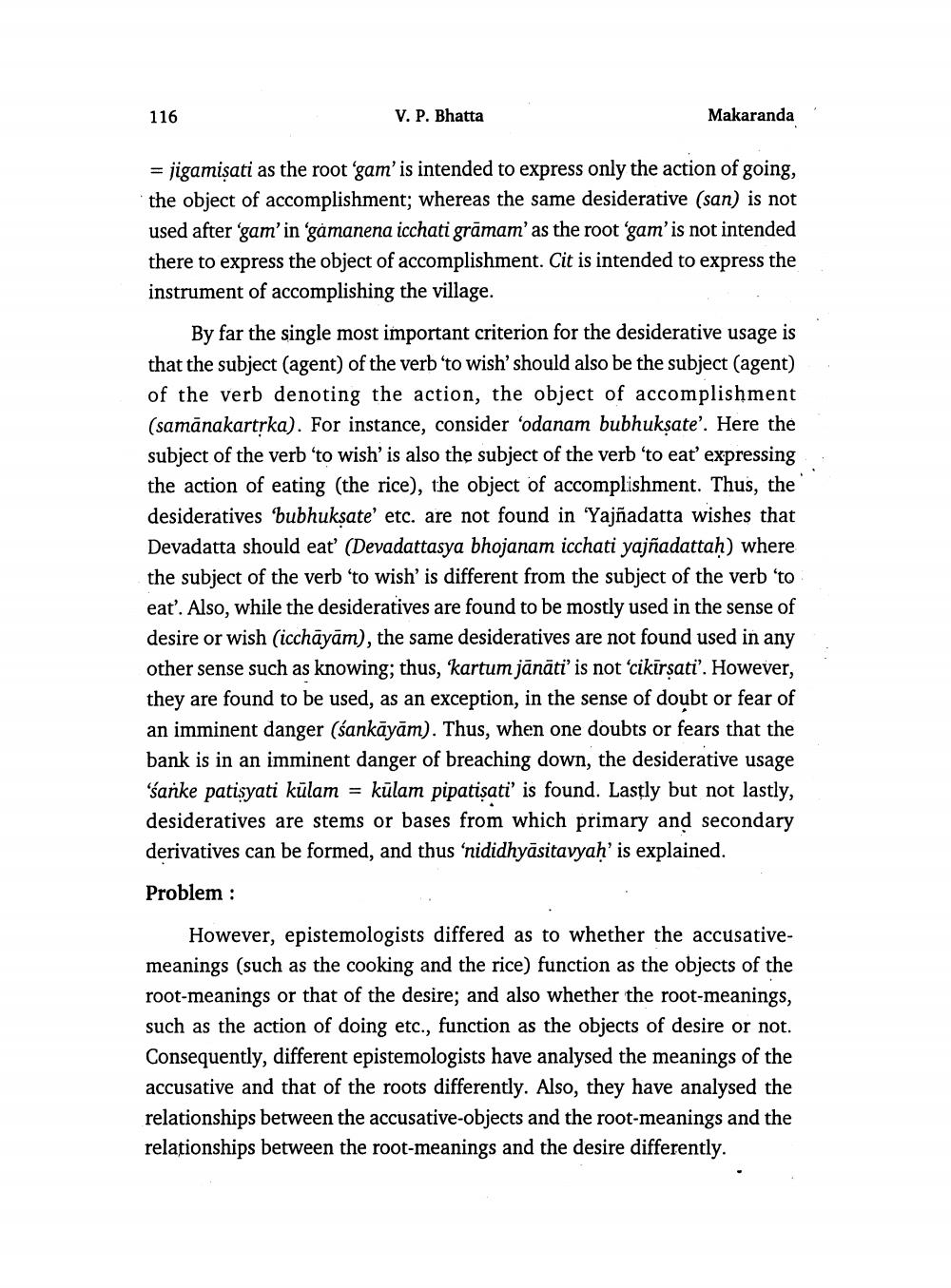________________
116
V. P. Bhatta
Makaranda
= jigamişati as the root 'gam' is intended to express only the action of going, the object of accomplishment; whereas the same desiderative (san) is not used after gam'in 'gamanena icchati grāmam'as the root 'gam' is not intended there to express the object of accomplishment. Cit is intended to express the instrument of accomplishing the village.
By far the single most important criterion for the desiderative usage is that the subject (agent) of the verb 'to wish' should also be the subject (agent) of the verb denoting the action, the object of accomplishment (samānakartrka). For instance, consider ‘odanam bubhukșate'. Here the subject of the verb 'to wish' is also the subject of the verb 'to eat' expressing the action of eating (the rice), the object of accomplishment. Thus, the desideratives 'bubhuksate' etc. are not found in 'Yajñadatta wishes that Devadatta should eat' (Devadattasya bhojanam icchati yajñadattah) where the subject of the verb 'to wish' is different from the subject of the verb 'to eat'. Also, while the desideratives are found to be mostly used in the sense of desire or wish (icchāyām), the same desideratives are not found used in any other sense such as knowing; thus, 'kartum jānāti' is not 'cikīrsati'. However, they are found to be used, as an exception, in the sense of doubt or fear of an imminent danger (śankāyām). Thus, when one doubts or fears that the bank is in an imminent danger of breaching down, the desiderative usage 'śarke patisyati kūlam = kūlam pipatisati' is found. Lastly but not lastly, desideratives are stems or bases from which primary and secondary derivatives can be formed, and thus 'nididhyāsitavyah' is explained.
Problem:
However, epistemologists differed as to whether the accusativemeanings (such as the cooking and the rice) function as the objects of the root-meanings or that of the desire; and also whether the root-meanings, such as the action of doing etc., function as the objects of desire or not. Consequently, different epistemologists have analysed the meanings of the accusative and that of the roots differently. Also, they have analysed the relationships between the accusative-objects and the root-meanings and the relationships between the root-meanings and the desire differently.




